Free delivery to relay points from 59€.
5% discount on baskets over €100
From 200€ basket: - 10% discount
Free delivery to relay points from 59€.
5% discount on baskets over €100
From 200€ basket: - 10% discount
Catimor, Caturra, Bourbon, Geisha, Typica.
Coffee cooperative (500 producers – 10 years’ experience) based in northern Peru, specialized in organic and fair trade. Agricultural technicians train producers in their farming practices, and the cooperative has a Q grader*.
Province of San Ignacio, Jaen and Cutervo.
Altitude: 1,200-1,800 m.
Soil: Mostly clay and volcanic soils.
Shade trees: on average 25% shade trees (Ingas, Cedar, Acacia, Mango).
April – November
The coffee trees grow under shade at moderate altitudes and in the sun at higher altitudes. The coffee is fermented (24h-36h), washed and dried on the patio or in a drying tunnel within the cooperative.
Fragrance and aroma of chocolate, sugarcane, peanuts and vegetal; medium acidity with citrus notes, medium body.
Note SCA** : 82/100.
Our Peru coffee is available in 250g ground and 500g bean sachets.
Bourbon, Lempira, Icafe 90, Catuai.
We work with an organic and conventional cooperative on a human scale (a hundred producers; 50% women and 50% men, 10 years’ experience with a dozen employees). They manage the entire coffee process at the cooperative’s head office, and have a Q grader*.
Located in the Marcala region, La Paz.
Altitude: 1,400-1,850 m
Soil: Mostly rocky and fertile soils.
Shade trees: on average 25% shade trees (Ingas, Guava, Cedar)
December to March
The coffee trees grow under shade at moderate altitudes and in the sun at higher altitudes. The coffee is fermented (24h), washed and dried on the patio or in a drying tunnel within the cooperative.
Chocolate, caramel, honey, creamy body, medium acidity, citrus notes
Note SCA** : 83/100.
Our Honduras coffee is available in 250g ground and 500g bean sachets.
Bourbon, Costa Rica, Peñasco, Arab and Marseillaise.
We work with 2 100% organic Mexican cooperatives. Between 450 and 300 producers. One centralizes the “post-harvest” process using a Q grader* to control coffee quality, the other lets each producer manage the process of his own coffee.
Chiapas.
Altitude: 1,500-1,800 m.
Soil: Mostly volcanic and sandy.
Shade trees: on average 30% shade trees (Ingas, Cedars, Eucalyptus, Tamarinds).
November to March.
Coffee trees grow under shade at moderate altitudes and in the sun at higher altitudes. The coffee is fermented (24h – 36h), washed and dried on patios or in drying tunnels.
Cocoa, Honey, Light body, Medium acidity, Notes of dried fruit, honey and caramel
Note SCA** : 83/100.
Our Mexican coffee is available in 250g ground and 500g bean sachets.
Caturra, Bourbon, Castillo.
We work with a European Group for our Colombian and Ethiopian coffees, which has been importing green coffee for almost a century. Concerned with the ecology, quality, safety, health and sustainability of the coffees it harvests, the group meets the strictest international standards and supports social and environmental projects.
Armenia, Medellin, Manizales, Popayan, Bucaramanga, Santander, Bogota, Huila.
Altitude: between 1 300 m – 1 900 m.
Soil: volcanic.
Hand-harvested, washed and sun-dried twice a year: from September to December and from April to June.
Ripe fruit, nutty dried fruit and red berry notes; smooth but intensely acidic cup.
Note SCA** : 82/100.
Our Colombian coffee is available in 250g ground and 500g bean sachets.
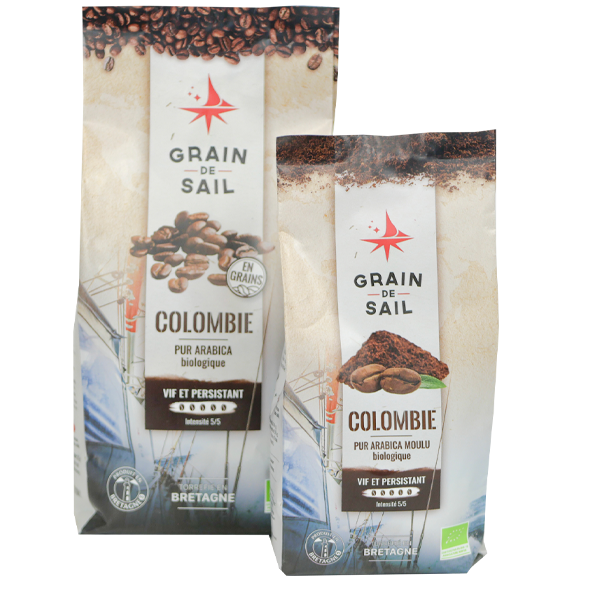
Natives.
We work with a European Group for our Colombian and Ethiopian coffees, which has been importing green coffee for almost a century. Concerned with the ecology, quality, safety, health and sustainability of the coffees it harvests, the group meets the strictest international standards and supports social and environmental projects.
Limu West Wellega (south-west Ethiopia).
Altitude: between 1,600 and 2,000 m.
Soil: volcanic.
Hand-picked, washed and sun-dried once a year: from October to January.
A fine nose with light acidity and a complex body, this is a subtle, smooth coffee with a long finish and hints of cherry.
Note SCA** : 80/100.
Our Ethiopian coffee is available in 250g ground and 500g bean sachets.
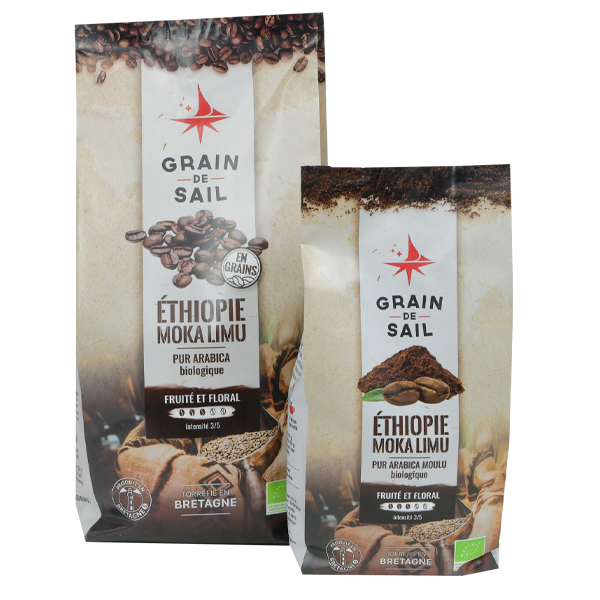

Nous effectuons des mélanges de masses de cacao d’origine Pérou et République Dominicaine pour obtenir des couvertures de chocolat équilibrées et atypiques. Pour tout savoir sur la confection des tablettes de chocolat, cliquez ici. La majorité de nos masses de cacao sont transportées à la voile. Tous nos efforts sont concentrés pour respecter nos engagements, mais compte tenu de la situation actuelle du cacao et des difficultés d’approvisionnement, des ajustements seront potentiellement envisagés autant en mode de transport et qu’en matière d’origine.
Our cocoa beans come from a variety of suppliers. The majority of our cocoa is shipped directly from Peruvian suppliers. A minority comes from European processors. The beans are mainly of the Trinitario variety.
Located in the heart of the San Martin region, now recognized as one of the world’s leading producers of quality cocoa, the Peruvian cooperative is supported by our suppliers, who support environmental projects (forest preservation, fair trade, etc.).
Most of the cocoa beans are mass-processed in factories in Peru, in accordance with our specifications. The cocoa from this terroir combines strength with very chocolaty notes, but also sweetness with notes of hazelnut. It also has notes of red fruit.
We work with a single supplier who collects, ferments and dries the cocoa beans before transforming them into masses. Most of the cocoa is grown in agroforestry. The beans are mainly of the Trinitario variety.
Our supplier of cocoa mass is based in the Province of Duarte in the center of the Dominican Republic, recognized as the country’s cocoa capital.
The Dominican company, with over a century’s experience, employs 200 people to ferment, dry, roast and transform cocoa into paste. This transformation is tailor-made to our specifications. Cocoa from this region has notes of exotic fruits and dried fruits.

We call on a cooperative with 40 years’ experience. It employs almost 220 salt workers. The salt is hand-harvested, IGP-certified and recognized for its taste.
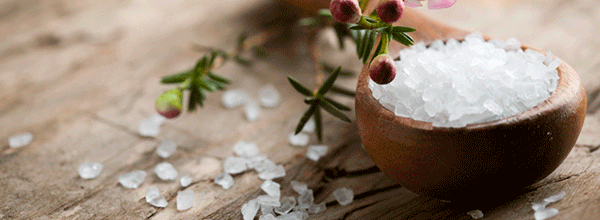
Salt and fleur de sel cannot be considered organic in the food sector, as they are mined products and not agricultural products. They are used to enhance the taste of chocolate.
Our supplier is a Franco-Malagasy company that works in direct collaboration with the planters, ensuring full traceability of the process. A final selection is made on arrival in France before processing into powder.
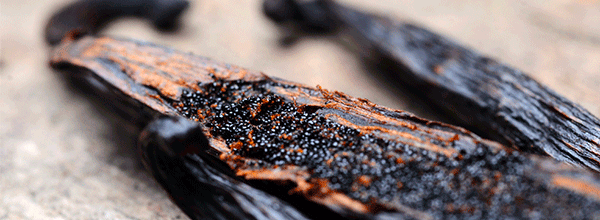
Vanilla diffuses its typical taste into the chocolate and adds a light spicy note.
Our partner is an independent family group based in the Pays des Abers (Finistère) with almost 60 years’ experience in dairy production. Milk is collected in Brittany, Mayenne and Normandy, then processed in Finistère.
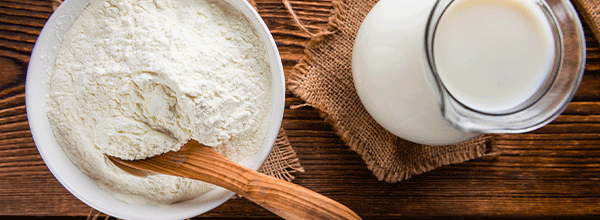
As chocolate doesn’t like humidity, we use milk powder. It adds sweetness and a slight farmhouse taste to our couvertures.
* Caution: milk is an allergen.
We work with a family-run company based in the heart of Italy’s Piedmont region, employing around 50 people. Hazelnuts are shelled, sorted mechanically and by hand. Roasting is made to order.
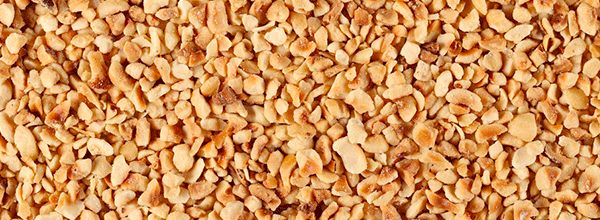
Our hazelnuts are grown in Piedmont and are of the Tonda Gentile Trilobata variety, one of the finest in the world.
Our supplier is a GIEE (Groupement d’intérêt économique et environnemental) recognized company based in Mayenne. It sorts, hulls, washes, dries and bags buckwheat grown by the company and by farmers in its network.
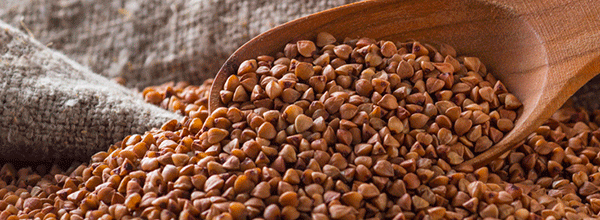
Our buckwheat is custom-roasted to bring out its full flavors in our chocolate.
We work with a human-sized trading company with over 15 years’ experience specializing in sourcing and building short supply chains. The peanuts are grown and processed in Egypt before being roasted in Europe. Traceability of the entire process.
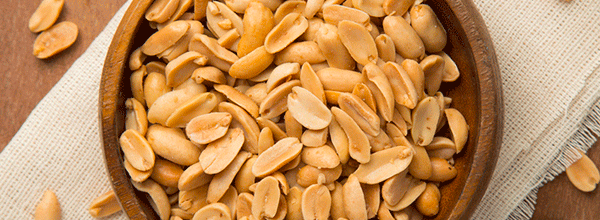
We work with a human-sized trading company with over 15 years’ experience specializing in sourcing and building short supply chains. The grapes are grown in Turkey on the Manisa plains, and then collected by a local company with organic and fair-trade projects in the region.
We work with a human-sized trading company with over 15 years’ experience specializing in sourcing and building short supply chains. The grapes are grown in Turkey on the Manisa plains, then collected by a local player.
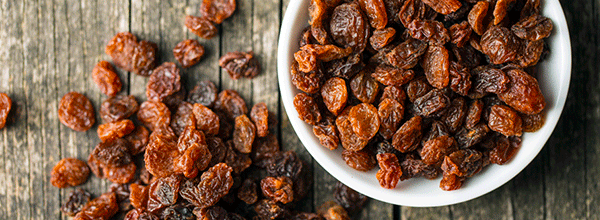
Our “sultana” raisins come from the Vitis vinifera variety. They are coated with organic sunflower oil, giving them a soft texture and a sweet, fruity taste.
As for the caramel chips, they come from a family-run French company with over half a century’s experience in making caramel in a variety of forms.
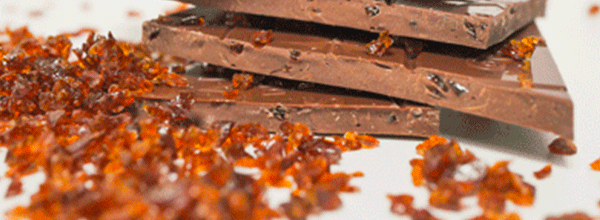
Our caramel chips are crunchy to the bite and add that sweet touch to our recipes.
We work with a human-sized trading company with over 15 years’ experience specializing in sourcing and building short supply chains. Coconut is grown in Sri Lanka, north of Colombo in the “coconut triangle”. This type of coconut is particularly aromatic, and is roasted locally to order.
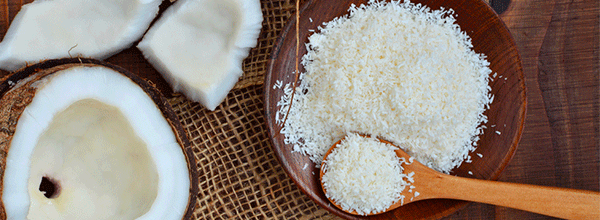
The freshness of coconut with a hint of caramelization from the roasting, ideal for a tasting trip.
The black tea comes from the Nilgiri mountain province and is combined with Bergamot essential oil, all flavored in a small company in Finistère.
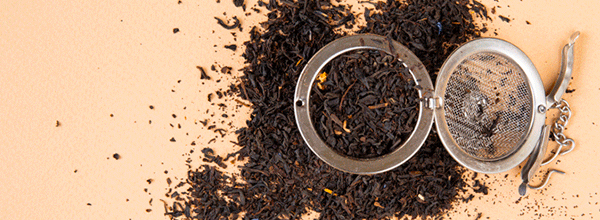
Earl Grey tea combines black tea with the typical citrus taste of Bergamot.
Company specialized in sugar import and trading. It is one of the European leaders in the organic sugar market. Our sugar comes from a sugar mill in western Colombia.
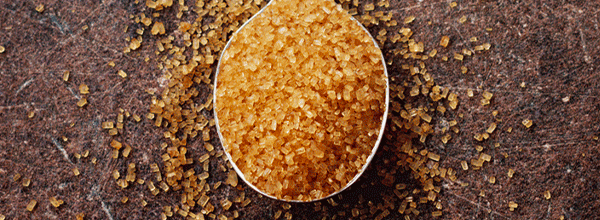
Our lightly golden blond cane sugar adds a malty note as well as sweetness and softness to our chocolate.
We work with a human-scale trading company with over 15 years’ experience specializing in sourcing and building short supply chains. Sesame is grown on the banks of the Nile in Egypt, and roasted locally to order.
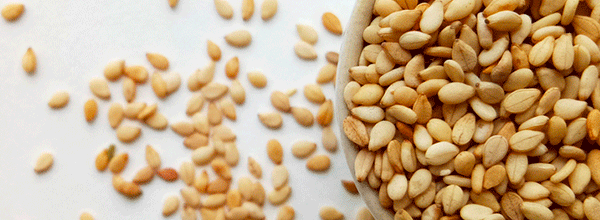
Our sesame seeds are delicately toasted, giving them a crisp, crunchy texture.
We have been working with an organic wholesaler in France for over 20 years. The raspberries are produced, dried, cut and preserved in freeze-dried form in Poland.
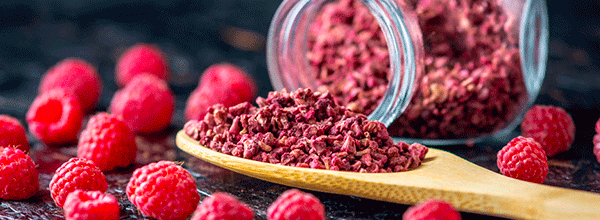
The typical raspberry flavour and slightly acidic taste concentrated in fine inclusions.
A family business, processing dried fruit using traditional drying and grinding methods. Our hazelnuts come from Italy (Sicily) and our sugar from Paraguay, all processed in France.
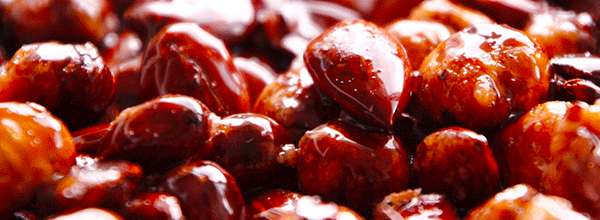
Praline combines the smell and crunch of hazelnuts with the sweetness of caramelization.
*Praline is a member of the nut family and is an allergen.
Lecithin specialist with an international network and a processing plant in Holland. Sunflower is mainly sourced from Eastern Europe, but other origins are also used in view of the availability…
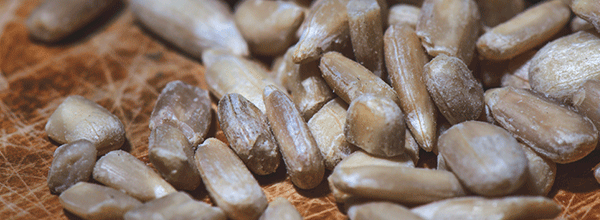
Organic sunflower lecithin liquefies the chocolate coating and adds shine.
The beans come from Ecuador, Peru, Dominican Republic, Congo, Tanzania and Uganda. The beans are assembled in the Netherlands by a company that has been a pioneer in organic production in Europe for over 40 years.
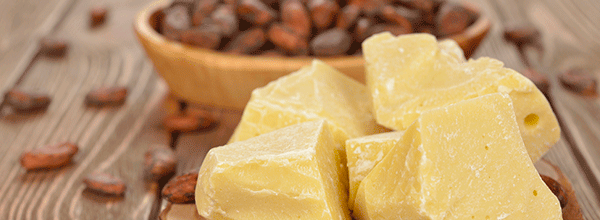
Deodorized cocoa butter is appreciated for its neutral taste and its fluidity, giving chocolate its roundness and smoothness.
We blend two origins of Grain de Sail coffee (Mexico and Colombia) to give our coffee bars their distinctive taste.
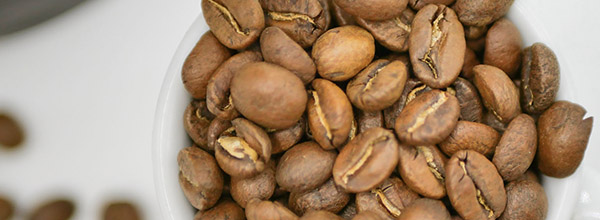
The coffee adds intensity and reduces the sweetness of the cocoa.
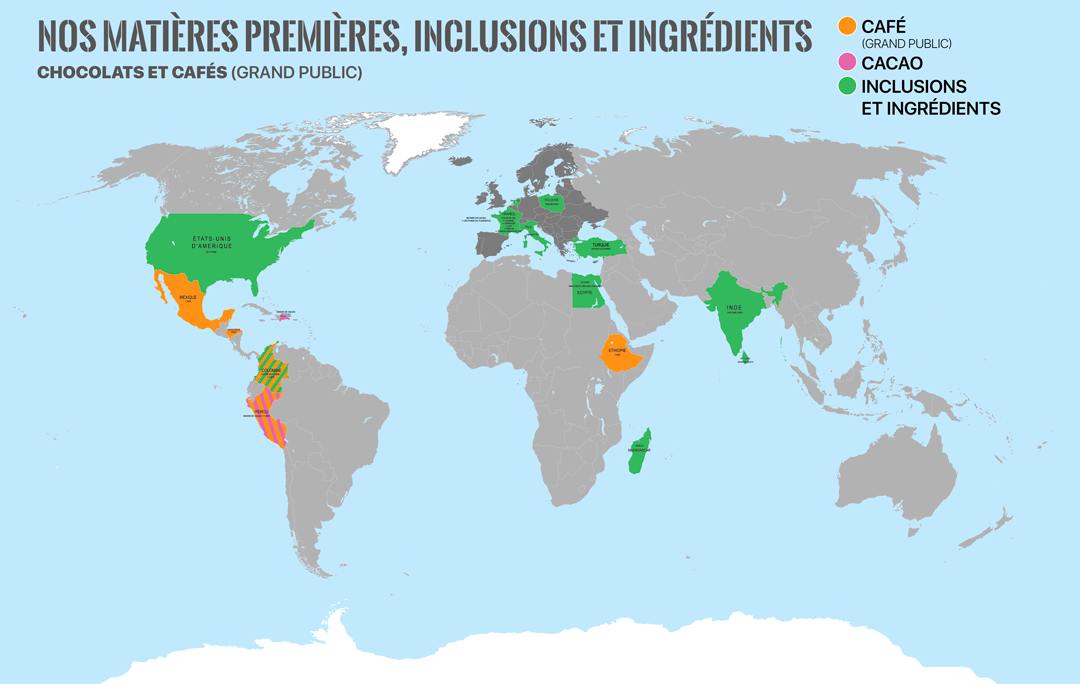
To ensure the quality of our products in the choice of our partner suppliers, in the selection of the taste of our raw materials, but also in their normative quality (microbiology and physico-chemistry of our raw materials, etc.). We follow a strict control plan on purchase and import (compliance with biological, food and health regulations, etc.).
Traceability is of paramount importance at Grain de Sail. We audit our suppliers, visit coffee and cocoa production sites, and monitor product life cycles.
Whenever possible, we give preference to local or regional companies.
We aim to build long-term, trusting relationships with our suppliers, in order to offer a healthy, high-quality product.
The contracts we sign with our partner suppliers respect the work we put in, the quality of our raw materials, and our aim: to offer our customers a product that is as affordable as possible.
The Grain de Sail project is built around respect for the environment and its preservation. For us, it’s essential to work with organizations that embrace sustainability values and initiatives, and have a strong CSR policy.
All our purchasing contracts with partner suppliers contain an “Ethics and Sustainable Development” clause to ensure compliance with labor and environmental standards. We also take parallel action with producers in Latin America, so that they can benefit from subsidies for :
– Converting to organic farming
– Improve their drying techniques
– Encourage the practice of agroforestry (planting shade trees to preserve biodiversity and promote quality production).
Since November 2020, our first cargo sailboat, Grain de Sail I, has enabled us to import part of our raw materials from the Dominican Republic (between 30% and 50% of our cocoa mass requirements depending on the year, and a few kilograms of green coffee).
Grain de Sail II will enable us to move towards self-sufficiency and achieve our goal of transporting the vast majority of cocoa masses by cargo sailboat. Since the summer of 2024, we have been importing green coffee from Peru, Mexico and Honduras for large and medium-sized retailers (general public) using wind power.